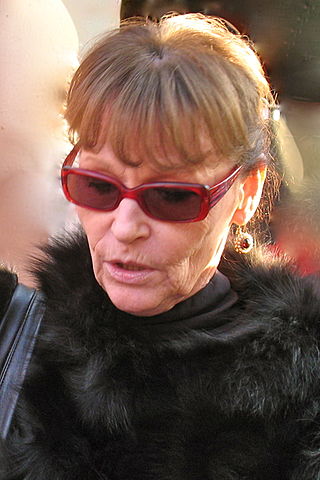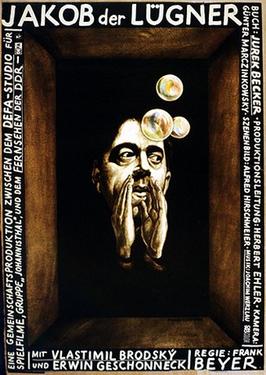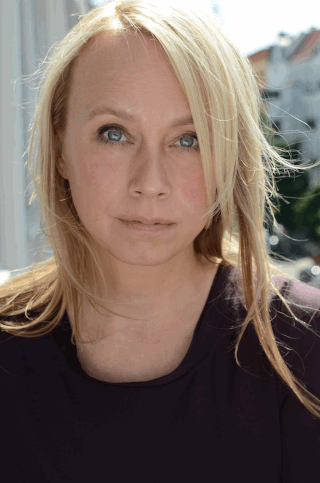Related Research Articles

The film industry in Germany can be traced back to the late 19th century. German cinema made major technical and artistic contributions to early film, broadcasting and television technology. Babelsberg became a household synonym for the early 20th century film industry in Europe, similar to Hollywood later. Early German and German-speaking filmmakers and actors heavily contributed to early Hollywood.

DEFA was the state-owned film studio of the German Democratic Republic throughout the country's existence.
UFA GmbH, shortened to UFA, is a film and television production company that unites all production activities of the media conglomerate Bertelsmann in Germany. The original UFA was established as Universum-Film Aktiengesellschaft on December 18, 1917, as a direct response to foreign competition in film and propaganda. UFA was founded by a consortium headed by Emil Georg von Stauß, a former Deutsche Bank board member. In March 1927, Alfred Hugenberg, an influential German media entrepreneur and later Minister of the Economy and Minister of Agriculture and Nutrition in Adolf Hitler's cabinet, purchased UFA and transferred ownership of it to the Nazi Party in 1933.

Frank Paul Beyer was a German film director. In East Germany he was one of the most important film directors, working for the state film monopoly DEFA and directed films that dealt mostly with the Nazi era and contemporary East Germany. His film Trace of Stones was banned for 20 years in 1966 by the ruling SED. His 1975 film Jacob the Liar was the only East German film ever nominated for an Academy Award. After the fall of the Berlin Wall in 1989 until his death he mostly directed television films.

Die Legende von Paul und Paula is a 1973 tragicomic East German film directed by Heiner Carow. A novel by Ulrich Plenzdorf named Die Legende vom Glück ohne Ende was based on this film.

Slatan Theodor Dudow was a Bulgarian born film director and screenwriter who made a number of films during the Weimar Republic and in East Germany.

Babelsberg Film Studio, located in Potsdam-Babelsberg outside Berlin, Germany, is the second oldest large-scale film studio in the world only preceded by the Danish Nordisk Film, producing films since 1912. With a total area of about 460,000 square metres (5,000,000 sq ft) and a studio area of about 25,000 square metres (270,000 sq ft) it is Europe's largest film studio.

Angelica Domröse is a German actress, who became famous in the role of Paula in Heiner Carow's film The Legend of Paul and Paula. Her biological father was a prisoner of war from France.

The DEFA Film Library at the University of Massachusetts Amherst is the only research center and archive outside of Germany devoted to a broad spectrum of filmmaking from and related to the former German Democratic Republic. Researchers are welcome to the archive by pre-arranging their visit.

Coming Out is a 1989 East German film directed by Heiner Carow and written by Wolfram Witt which deals with the lead character, a high school teacher, "coming out" and accepting himself as gay. It was the last East German film released to the public prior to the German reunification and one of the last films made by DEFA, the East German state film studio, and the only gay-themed feature film that it made.

Jacob the Liar is a 1975 war drama film directed by Frank Beyer, adapted by Beyer and Jurek Becker from the latter's novel of the same title. Set in Nazi-occupied Poland during the Holocaust, the film centers on Jakob Heym, a Polish Jew who attempts to raise the morale inside the ghetto by sharing encouraging rumors that he claims he has heard on an (imaginary) radio. The film was a co-production between East Germany and Czechoslovakia. It premiered on East German television on 22 December 1974, and was released theatrically on 18 April 1975.

The Kino International is a film theater in Berlin, built from 1961 to 1963. It is located on Karl-Marx-Allee in former East Berlin. It hosted premieres of the DEFA film studios until the fall of the Berlin Wall in 1989. Today it is a protected historic building and one of the venues of the annual Berlin International Film Festival (Berlinale).

Miriam Dehne , is a German film director and screenwriter.

Renate Krößner, also known as Renate Krössner, was a German actress who was internationally recognized for roles in films and television. She was awarded the Silver Bear for Best Actress of the Berlinale for the title role in the 1980 film Solo Sunny. From 1985, she worked in West Berlin and was known for roles in TV series such as Tatort and Einmal Bulle, immer Bulle.

Heiner Carow was a German film director and screenwriter. His 1986 film So Many Dreams was entered into the 37th Berlin International Film Festival. The following year, he was a member of the jury at the 38th Berlin International Film Festival. In 1990, his film Coming Out won the Silver Bear for an outstanding artistic contribution at the 40th Berlin International Film Festival. Carow died in 1997, aged 67. His grave is located in Babelsberg.

The Heinrich Greif Prize was an East German state award bestowed on individuals for contribution to the state's cinema and television industry.

Hands Up or I'll Shoot is an East German crime comedy film directed by Hans-Joachim Kasprzik, who wrote the script along with Rudi Strahl. Rolf Herricht starred as officer Holms.
Herwig Kipping is a German film director and script writer.

Dirk Kummer is a German actor, director, and screenwriter. He is best known for directing movies Sugar Sand (2017), Wohin mit den Witwen (1999) and Rosenzweig's Freedom (1998).

PROGRESS is a German film distributor. It was established in 1950 to handle the release of films produced by DEFA, the state-controlled production outfit of communist East Germany. Since 1989 Progress distributes the entire DEFA film collection.
References
- ↑ "Evelyn Carow: Schnittmeisterin" (in German). DEFA Stiftung. Archived from the original on 21 July 2019. Retrieved 27 May 2020.
- ↑ von Reden, Sven (2 December 2005). ""Man muss kämpfen"" (in German). taz . Retrieved 27 May 2020.